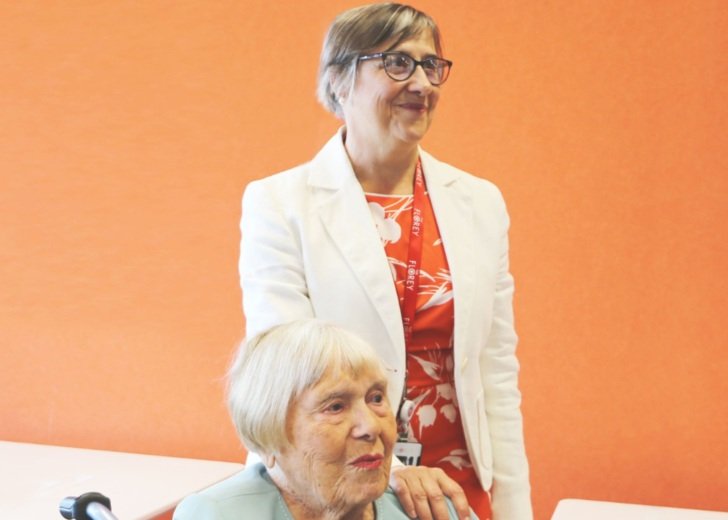Professor Bernhardt was just 16 when her uncle Barry experienced a stroke. The saying goes that stroke doesn’t just affect the individual but affects families, which was certainly true for Barry, his wife Ronda and their sons. It also profoundly affected Prof Bernhardt, who was inspired to become a physiotherapist and dedicate her career to stroke research after watching her uncle’s rehabilitation and recovery journey.
As Professor Bernhardt watched her uncle Barry adapt to challenges after his stroke, she became fascinated with the brain. But frustrated with the absence of evidence to help make decisions about the best treatments to improve recovery, she completed a research training degree (PhD) in motor control in the late 1990s. This equipped her to develop and study new ways to treat people with brain injury to improve their recovery.
Over the years, Ronda and Barry encouraged Professor Bernhardt’s work and she quickly developed an acute sense of the long-term impact of stroke and the importance of striving for good quality of life despite the challenges it presented. Through her, Ronda also understood that more funding continues to be needed to accelerate the rate of finding better treatments for people who have experienced stroke. Despite the common and devastating effects of stroke, philanthropic support for stroke research has historically been surprisingly modest.
Now 91 years old, Ronda’s interest and philanthropic support for Professor Bernhardt’s work has been constant and impactful.
“It is rewarding to watch and assist the contributions to stroke treatment led by Julie and her team. I understand the impact and frustrations caused by stroke and am so happy that our family can help,” said Ronda.

Over the past seven years, Professor Bernhardt’s team have investigated and identified the major unmet needs of younger people who experience stroke. Thanks to this foundation of research, Professor Julie Bernhardt and Professor Vincent Thijs, Co-Heads of the Stroke Theme at The Florey, are now leading Australia’s first comprehensive young stroke service out of the Institute.
Their vision is to create an all-in-one service connecting people aged 18-45 who have experienced a stroke with care providers and peer support to enable long term recovery.
“This collaborative project will build, test and embed an innovative, digitally-enabled young stroke service to overcome geographic boundaries and better meet the long-term care need of young people who experience stroke,” said Prof Bernhardt.
“By streamlining what are currently fragmented services, we hope to connect young people who experience stroke to the personalised services they need and stay connected with them for five years to follow and support their stroke journey,” she added.
The project is made possible thanks to funding from the Australian Government and added philanthropic support of a significant donation from Ronda and her family. It is support, like that of Ronda and others, that allows researchers to conduct proof of concept research and preliminary investigations on neurological conditions like stroke.
Philanthropy often assists in generating research evidence needed to attract grants from government or commercial partners, which help to further knowledge, translate discoveries into clinical treatments or progress to clinical trials. It is a driving force behind the ‘bench to bedside’ approach in medical science and is a key part in every researcher’s journey to complete bold, impactful investigations that improve the human condition – the core mission of a scientist’s life-long endeavour.
This article was written by Mr Eric Cheng and Professor Julie Bernhardt, The Florey Institute of Neuroscience and Mental Health.
Originally published in issue 23 of Research Australia’s INSPIRE magazine.